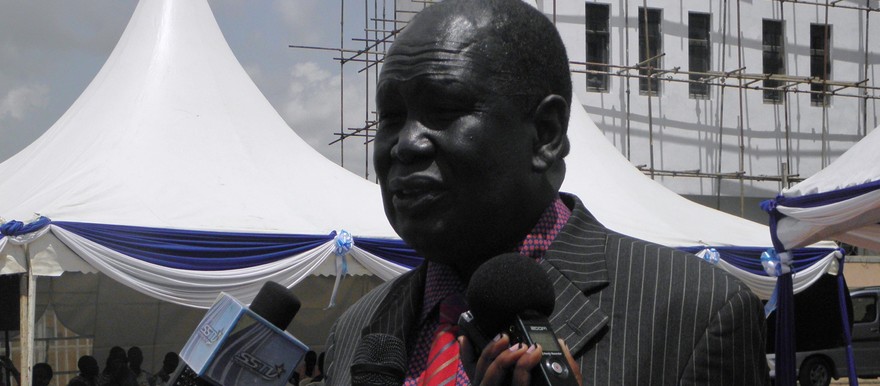The National Platform for Peace and Reconciliation (NPPR) has joined civil society organizations in launching a peace campaign in Juba under the theme “Re-Awakening a common call for Peace among South Sudanese”. The event launch coincided with the opening of new offices for NPPR on Airport Road.
Last year NPPR launched itself as an anti-war organization backed by church leaders but it did not succeed in ending the war. Similarly, civil society organizations have held some demonstrations in Juba but not significantly disrupted the war efforts.
The Chairperman of the Peace and Reconciliation Commission, one of the constituent organizations of NPPR, Chuol Rambang said the initiative will run until October this year.
Chuol said, “We will continue working on it and reaching everybody from door to door, state to state, county to county, payam to payam as far as even up to boma because this is an area where everybody will be engulfed. All the civil society organisations, all the other peace partners, all those who are participating in the issues to do with peace.”
The launch of the peace campaign was attended by members of international organizations among them UNDP and Swiss Cooperation, and also civil society and religious leaders.
Rev. James Oyet Lantansio, the Secretary General for South Sudan Council of Churches called for an end to the ongoing conflict saying that there is no moral justification to keep killing innocent citizens in South Sudan regardless of any political issues on both the opposition and the government side.
He said the same people who fought for the liberation of South Sudan calling themselves comrades quarrelled among themselves beating each other. Referring to Kiir and Riek, Oyet added that the conflicting parties’ long sticks did not reach each other but instead kept on hitting innocent people of South Sudan.
“Cessation of hostilities must be implemented before any detailed negotiation for the future,” he said. “It is unacceptable to negotiate positions while people in South Sudan are bleeding, are dying. Negotiations are there while innocent people in the corners of Malakal, Unity State, Kodok, near Paloich, and near Nasir are dying.”
“Why?” he asked. “Do they deserve to die? They deserve to live.”
He called for reconciliation among citizens in a free South Sudan with no ethnic rivalries where the people share all the resources of the nation equally.
Lona Merekaje, representative of the civil society, at the event said South Sudan has huge budgets for their ministries but it is not evident on the ground that the budgets have been used for the benefit of the citizens for service delivery, asking where the money has gone.
She pointed out that after South Sudanese voted for independence during the referendum they did not think of seeing big and many guns with tanks rolling around killing people, but they hoped to see development and peace.




